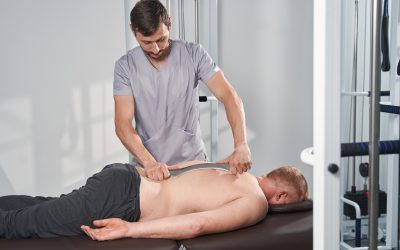Arthritis is a common, and sometimes debilitating, disorder that affects many people worldwide, and is also the leading cause of disability in the United States. Over 20 million people who are afflicted with the condition suffer from severe and daily functional limitation, and even these only account for a fraction of the number of individuals who have arthritis on the whole. Its severity varies from person to person, and it can have any number of causes—but the thing that all cases of arthritis have in common is that they cause difficulty and often pain in the individual’s joints.
Arthritis occurs when one or more joints in a person’s body become inflamed, potentially leading to numerous other complications. There are over 100 different varieties of this disorder, but the most common form by far is osteoarthritis (also called degenerative arthritis or degenerative joint disease). This variation of the condition involves severe degradation of parts of the joints, such as the subchondral tissue of the epiphysis and the articular cartilage, which covers the surface of the bone and allows for smooth bending and flexing. When a person is stricken with osteoarthritis, the cartilage that layers the bone tissue grows incredibly thin so that when the joints move bone tissue is ground against bone tissue. This increased traction causes victims of osteoarthritis a lot of pain, and results in severe stiffness of the joints. For the most part, this form of arthritis is not the result of any kind of disease—rather osteoarthritis can be seen as a sign of excessive wear, as it mostly affects joints that have been exposed to unhealthily large amounts of stress. Rheumatoid arthritis is another common form which occurs when the immune system begins to attack the body’s own tissue for unknown reasons.
Other variations of arthritis may be side-effects of other illnesses, such as Lyme disease, inflammatory bowel disease, and hepatitis. Some forms of the condition may also affect parts of the body other than just the bones, inducing symptoms like weight loss and fever—in some cases, it’s possible that the internal organs will also face complication. Naturally, since arthritis limits a person’s movement, it is also common for secondary symptoms related to decreased physical fitness to occur; someone with arthritis will most likely be much less flexible than the average person, and their muscle endurance may also suffer.
Unfortunately, there is currently no known cure for rheumatoid arthritis or osteoarthritis. However, there are a number of treatments that can help ease some of the symptoms. The most common method of dealing with the issue is arthroplasty; a form of orthopedic surgery where the surface of the joint is either replaced so as to stop the bones from rubbing together, or remodeled/realigned by means of some other type of procedure. For those who live in Austin, arthritis can be treated by visiting any of various clinics and specialists in the area.
Contact Texas Orthopedics, Sports and Rehabilitation Associates if you are an Austin arthritis sufferer. Call (512) 439-1000, (877) 966-7846, or request an appointment online. Texas Orthopedics, Sports and Rehabilitation Services has six locations in the Austin area to treat arthritis pain.
Arthritis is a common, and sometimes debilitating, disorder that affects many people worldwide, and is also the leading cause of disability in the United States. Over 20 million people who are afflicted with the condition suffer from severe and daily functional limitation, and even these only account for a fraction of the number of individuals who have arthritis on the whole. Its severity varies from person to person, and it can have any number of causes—but the thing that all cases of arthritis have in common is that they cause difficulty and often pain in the individual’s joints.
Arthritis occurs when one or more joints in a person’s body become inflamed, potentially leading to numerous other complications. There are over 100 different varieties of this disorder, but the most common form by far is osteoarthritis (also called degenerative arthritis or degenerative joint disease). This variation of the condition involves severe degradation of parts of the joints, such as the subchondral tissue of the epiphysis and the articular cartilage, which covers the surface of the bone and allows for smooth bending and flexing. When a person is stricken with osteoarthritis, the cartilage that layers the bone tissue grows incredibly thin so that when the joints move bone tissue is ground against bone tissue. This increased traction causes victims of osteoarthritis a lot of pain, and results in severe stiffness of the joints. For the most part, this form of arthritis is not the result of any kind of disease—rather osteoarthritis can be seen as a sign of excessive wear, as it mostly affects joints that have been exposed to unhealthily large amounts of stress. Rheumatoid arthritis is another common form which occurs when the immune system begins to attack the body’s own tissue for unknown reasons.
Other variations of arthritis may be side-effects of other illnesses, such as Lyme disease, inflammatory bowel disease, and hepatitis. Some forms of the condition may also affect parts of the body other than just the bones, inducing symptoms like weight loss and fever—in some cases, it’s possible that the internal organs will also face complication. Naturally, since arthritis limits a person’s movement, it is also common for secondary symptoms related to decreased physical fitness to occur; someone with arthritis will most likely be much less flexible than the average person, and their muscle endurance may also suffer.
Unfortunately, there is currently no known cure for rheumatoid arthritis or osteoarthritis. However, there are a number of treatments that can help ease some of the symptoms. The most common method of dealing with the issue is arthroplasty; a form of orthopedic surgery where the surface of the joint is either replaced so as to stop the bones from rubbing together, or remodeled/realigned by means of some other type of procedure. For those who live in Austin, arthritis can be treated by visiting any of various clinics and specialists in the area.
Resource Box:
Contact Texas Orthopedics, Sports and Rehabilitation Associates if you are an Austin arthritis sufferer. Call (512) 439-1000, (877) 966-7846, or request an appointment online. Texas Orthopedics, Sports and Rehabilitation Services has six locations in the Austin area to treat arthritis pain.



